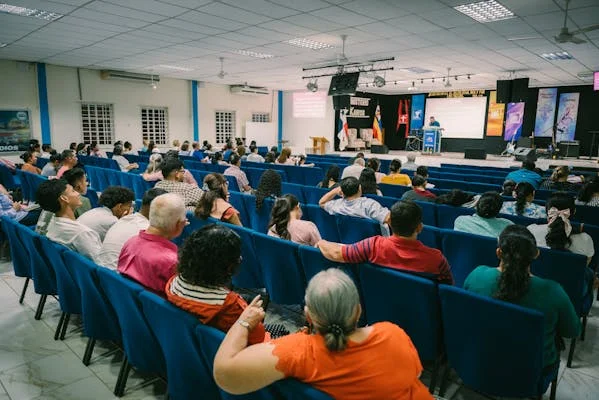Education is often seen as the great equalizer, a tool that can bridge gaps, uplift communities, and ensure everyone has a fair shot at success. Yet, the relationship between oligarchy, a concentration of power in the hands of a few, and education disrupts this ideal. While education is meant to empower, oligarchic influences can shape access, quality, and purpose, often consolidating privilege rather than distributing opportunity.
This blog explores the intersection of oligarchy and education, examining how concentrated power impacts education systems and perpetuates inequality. We’ll also discuss the role of institutions like the Shirley Ware Education Center in countering these effects and promoting accessible education for all.
Understanding Oligarchy in the Context of Education
What is Oligarchy?
Oligarchy refers to a system where power and wealth are concentrated in the hands of a minor, elite group. This power can influence various sectors, including politics, business, and education. These elites often shape societal structures to maintain dominance, ensuring that resources and opportunities predominantly benefit their interests.
How Education Becomes a Tool of Power
Education is one of the most significant societal tools that can level the playing field, but it can be manipulated under oligarchic influence to maintain the status quo. This manifests in several ways:
- Unequal Access: Elite private schools and universities often require exorbitant fees, ensuring that only those from wealthy backgrounds can attend.
- Policy Influence: Wealthy individuals and corporations often lobby for policies that favor exclusive educational opportunities or underfund public education.
- Curriculum Control: The educational content may be swayed to reflect the interests and ideologies of the elite, potentially sidelining diverse narratives and holistic perspectives.
The Impacts of Oligarchy on Education
Unequal Access to Quality Education
One of the most evident effects of oligarchy on education is inequitable access to quality learning environments. Public schools in underfunded districts often struggle to provide essential resources, while elite institutions are equipped with the latest technology, highly qualified staff, and tailored programs. This disparity denies countless children the chance to reach their full potential.
The Rising Cost of Higher Education
Oligarchic systems have contributed to the skyrocketing costs of college tuition, pushing higher education out of reach for many middle- and lower-income families. Student loan debt in the United States has reached crisis levels, further perpetuating cycles of poverty.
Privatization of Education
Privatization is another channel through which oligarchic influence thrives. While private and charter schools can innovate within the education space, they can also deepen inequalities by creating systems segregating students based on economic status. For-profit education institutions may prioritize profit margins over student success.
Education as a Means of Social Control
Some critics argue that oligarchic forces use education to reinforce passive citizenship rather than critical thought. Elites can shape societal values by controlling the curriculum and prioritizing certain narratives to preserve their dominance.
Challenging the Oligarchic Grip on Education
The Role of Public Education
Public education holds the potential to counter oligarchic influence by providing equal opportunities for all students, regardless of socioeconomic status. Adequate public funding, smaller class sizes, and teacher training are critical to creating equitable learning environments.
Advocacy and Grassroots Movements
Community-driven initiatives and grassroots movements are essential to addressing the inequalities perpetuated by oligarchy. Local advocacy groups can push for fair funding, representation in education policymaking, and accountability from institutions.
Institutions Promoting Change
Organizations like the Shirley Ware Education Center are instrumental in combating the adverse effects of oligarchy on education by focusing on equitable access, community engagement, and inclusive curriculum development; centers like this work tirelessly to create a fairer education system.
The Shirley Ware Education Center’s Role in Supporting Equity
The Shirley Ware Education Center is essential in challenging oligarchic influence in education. Here are some of the key ways it makes an impact:
- Community-Centric Programs: Focusing on empowering underserved communities, the center prioritizes programs that align with local needs and address disparities.
- Accessible Resources: The center provides materials and tools that make quality education accessible to all, particularly those who lack traditional avenues.
- Advocating for Policy Reform: The organization actively pushes for policies that level the playing field in education and ensure funding equity.
- Educational Discounts for All: Unique initiatives, like the Foundry educational discount, can make advanced tools or specialized courses accessible at a reduced cost for students who might otherwise be excluded.
Inspirational Success Stories
The Shirley Ware Education Center’s initiatives have benefited many individuals and families. For example, young students in underfunded school districts have accessed cutting-edge learning materials and expert mentorship previously unavailable. The center helps ensure that education is a ladder out of inequality by bridging gaps.
Building a Fairer Future
The future of education depends on collective efforts to dismantle oligarchic barriers and promote equitable systems. Here are some actionable steps to consider:
- Support Educational Initiatives: Contribute to organizations like the Shirley Ware Education Center that align with values of equity and inclusivity.
- Advocate for Policy Change: Push for education reforms that prioritize funding for public schools and make higher education affordable.
- Champion Diversity in Curriculum: Promote the inclusion of diverse perspectives and narratives in academic programs to create well-rounded and critical thinkers.
Empowering Through Education
Education should be a tool for empowerment, not division. By recognizing and addressing the influence of oligarchy on education, we can work toward a world where everyone has equal opportunities to learn and succeed. Institutions like the Shirley Ware Education Center remind us that change is possible, and grassroots efforts can challenge inequality at its core.





